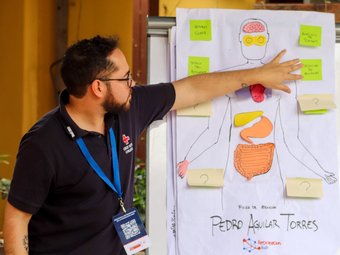Training of trainers will boost local anticipatory action in the Americas
Greater localization is one of the main challenges for anticipatory action in the Americas. To address this, it is essential to empower leaders capable of promoting actions that support the resilience of at-risk communities. To support this need, a second edition of the training of trainers advanced course on forecast-based financing was held from 29 May to 2 June in Valle de Angeles, Honduras.
The objective of this course is for Red Cross staff and volunteers to be ready to activate their Early Action Plans. The training, facilitated by the German Red Cross’s regional team and the Climate Centre, brought together a number of different specialists: anticipation focal points, disaster risk management managers and officers, coordinators, and administration specialists.
The training of trainers workshop uses a learning methodology with five modules: (1) Forecast-based financing champions; (2) Introduction to forecast-based financing; (3) Let’s explore Early Action Plans; (4) Anticipation by themes; and (5) Preparedness and activations. The training combined presentations and dynamic exchanges, with the intention of providing participants with various didactic tools that they can use according to their audiences.
Gustavo Hernandez, preparedness officer of the Reference Center for Disaster Preparedness (CREPD), highlighted that, “In my experience of facilitating other processes, it was interesting on this occasion to participate in a training [course] that will help us, through preparedness, to promote greater efficiency when activating anticipatory actions.”
To obtain the Anticipation Hub’s certification as a trainer, each participant will facilitate the course in their respective countries over the next few months. This will be supported by the German Red Cross, as well as other trainers from the first edition of this course, held in 2022.
The workshop in Honduras was attended by 27 representatives from 12 National Societies (Argentine Red Cross, Chilean Red Cross, Colombian Red Cross, Costa Rican Red Cross, Dominican Red Cross, Ecuadorian Red Cross, German Red Cross, Guatemalan Red Cross, Honduran Red Cross, Mexican Red Cross, Panamanian Red Cross and Salvadoran Red Cross).
Photos from the workshop
All photos by Natalie Acosta, German Red Cross.
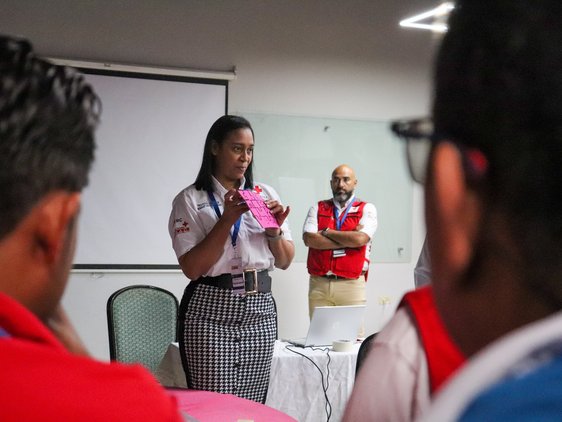
Altagracia Capellán, Dominican Red Cross, during a presentation.
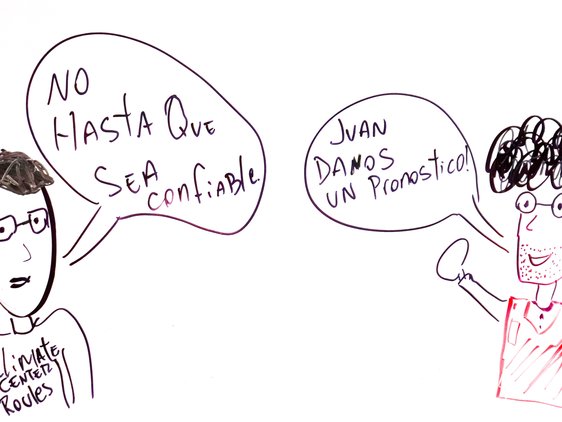
A cartoon that represents a forecasts dialogue between the regional team.
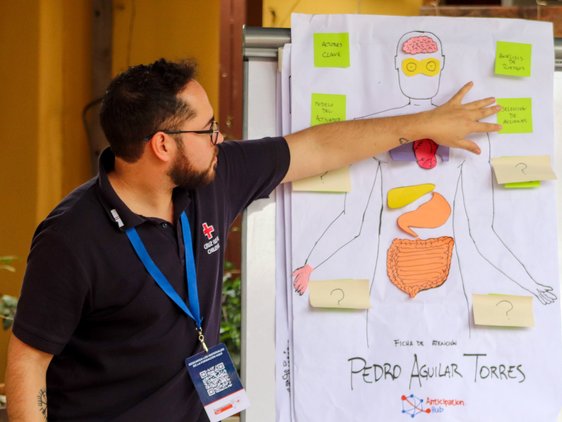
Creativity was boosted during the workshop.
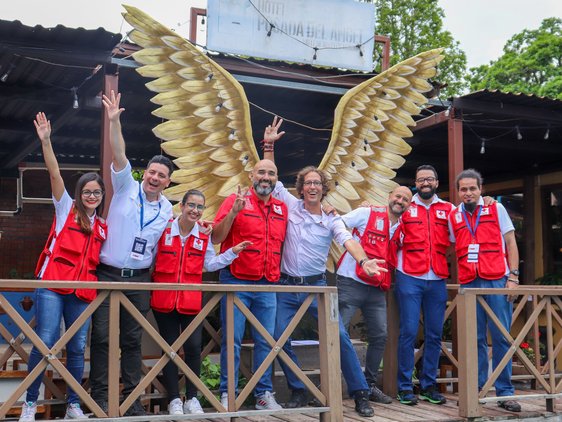
The German Red Cross team in the Americas.
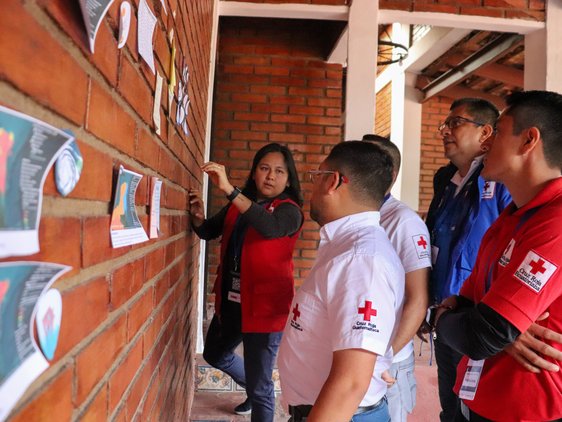
Sandra Estrada, Mexican Red Cross, during a presentation.
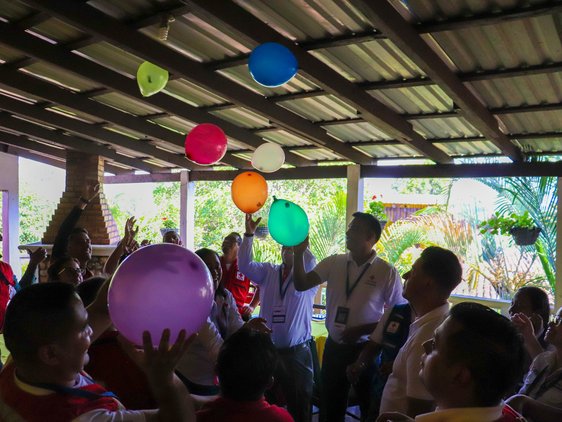
Several activities reinforced the importance of coordination.

The participants innovated by creating learning games.
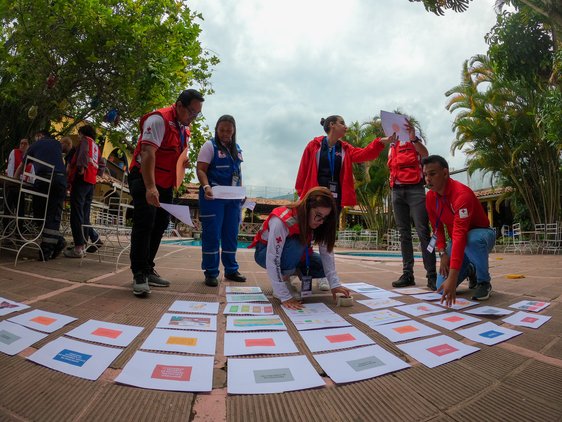
The training includes an in-depth examination of EAPs.
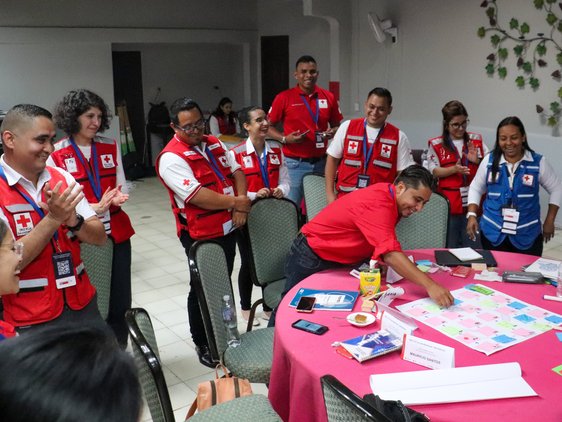
The training was an exchange opportunity.

Altagracia Capellán, Dominican Red Cross, during a presentation.
A cartoon that represents a forecasts dialogue between the regional team.
Creativity was boosted during the workshop.
The German Red Cross team in the Americas.
Sandra Estrada, Mexican Red Cross, during a presentation.
Several activities reinforced the importance of coordination.
The participants innovated by creating learning games.
The training includes an in-depth examination of EAPs.
The training was an exchange opportunity.

